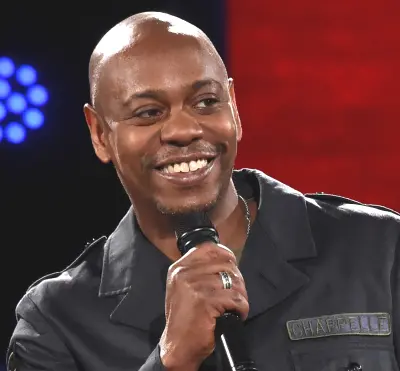The Dave Chappelle controversy is further proof Netflix isn't your friend
-

"Like most upstart studios, Netflix made inroads by targeting soft spots in the marketplace, areas where Hollywood’s institutional culture was falling short," says Sam Adams. "Although Netflix’s flagship production was the pricey, prestigious House of Cards, its defining hit was Orange Is the New Black, a series that used its pretty white protagonist as an on-ramp to the stories of incarcerated Black and Latina women—and most groundbreaking of all, Laverne Cox’s Sophia, a role which led to her being the first openly transgender person on the cover of Time. In the years that followed Orange’s 2013 debut, Netflix built on the image of itself as a place for diverse talent, both behind and in front of the camera." But in 2021, Netflix "doesn’t just want to be the place where you get the perspectives you can’t find anywhere else," says Adams. "They want to be the Everything Store, the go-to place for red America and blue America, not to mention Africa and Latin America and South Korea. And that inevitably means that some of its representational milestones—shows like Sense8 and GLOW and One Day at a Time—have been cut down in their prime. (As New York Times television critic James Poniewozik wrote, in a column after that last series was canceled, 'Netflix isn’t your buddy.') Netflix being Netflix, there’s always something else to watch. And in addition to its vaunted algorithm, the service has built up a network of social media-channels with names like @StrongBlackLead and @ConTodoNetflix, along with the LGBTQ handle @Most, to help viewers find a place to see their own experience reflected back at them. Those accounts don’t just promote Netflix’s diverse portfolio of content. They embody it, writing from a first-person perspective that makes it feel like it’s coming from a well-informed friend rather than a corporate behemoth. I know of several journalists who went from covering culture to working on Netflix’s socials. That personalization is a double-edged sword. Netflix has been tremendously effective at getting users to view their attachment to the service as part of their identity, and to respond to criticism of Netflix as if they’re being personally attacked. But it also means that they expect more from Netflix, including that it stands for something in a way no company of its size really can. No one expects ideological coherence from HBO, so it doesn’t feel like a contradiction, let alone a betrayal, to air I May Destroy You one night and Bill Maher the next...But at least some of Netflix’s trans employees believed that the company cared more about them than the pursuit of profit. On the same day that The Closer debuted, Terra Field, whose viral tweets sparked the protests of the special, tweeted about how Sarandos had made Netflix 'a great place for trans people to work.' As she admitted in a post (last) week, 'That aged like milk.'"
ALSO:
- The saga of Netflix and Dave Chappelle is hardly needed to illustrate the capriciousness and contradictions of corporate identity online: "Accounts such as @Most and @strongblacklead, after all, are only following the example set by companies such as Denny’s and Taco Bell, whose social-media managers pioneered the appropriation of Internet vernacular in the service of moving units," says Lauren Michele Jackson, adding: "These accounts launder the financial interests of their proprietors with emojis and gifs and allusions to stan culture. Behind the accounts are real people, whose priorities may not align with the company’s. But the past weeks’ events suggest how even in moments of internal turmoil the human element is readily exploitable. Did @Most’s acknowledgment that it had been a sucky week represent the voice of affronted staff members or the P.R. strategy of a canny social-media manager? That and other cheeky references to the Chappelle controversy—'ok you can go back to yelling at us now'—do not breach the corporate fourth wall so much as fortify it."
TOPICS: Dave Chappelle, Netflix, Dave Chappelle: The Closer, LGBTQ, Standup Comedy
More Dave Chappelle on Primetimer:- “I’ve been to Puffy’s house”: Dave Chappelle reveals Diddy’s bizarre question at a party, jokes missed “my big chance to f*ck Cassie”
- What did Dave Chappelle say about Charlie Kirk? Saudi Arabia joke controversy explained
- Is The Huxtables starring Dave Chappelle releasing on Peacock in 2025? Viral poster debunked
- Hannah Gadsby Returns to Netflix With a Burst of Joyous Comedy
